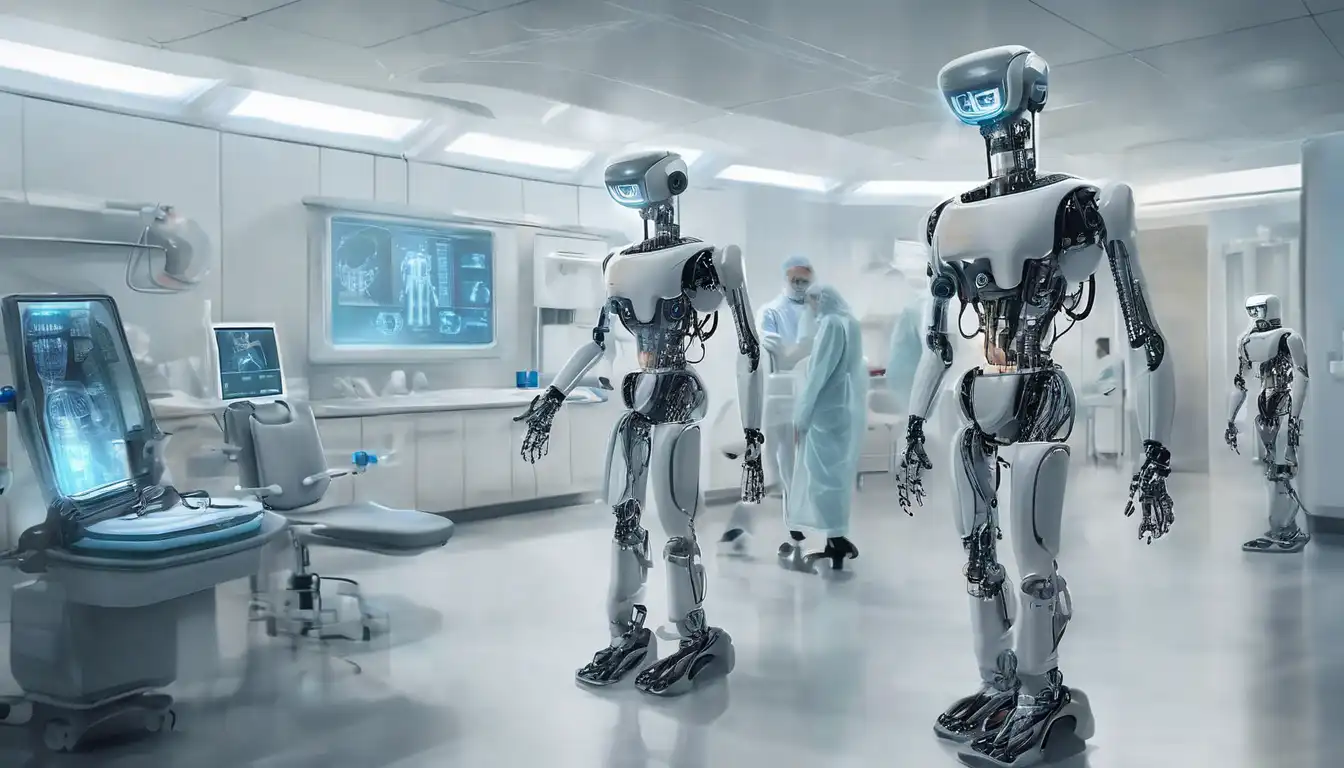The Next Era of Robotics in Healthcare
The integration of robotics into healthcare is transforming patient care, surgical procedures, and rehabilitation processes. This technological revolution is not just about automation; it's about enhancing precision, efficiency, and outcomes in medical treatments. As we look towards the future, the potential for robotics in healthcare seems boundless, promising to redefine the standards of care and operational efficiency in medical facilities worldwide.
Enhancing Surgical Precision with Robotics
Robotic surgery has become a cornerstone of modern medical practices, offering unparalleled precision and control. Systems like the Da Vinci Surgical System allow surgeons to perform complex procedures with minimal invasiveness, reducing recovery times and improving patient outcomes. The future promises even more advanced systems, capable of integrating real-time data and AI to assist in decision-making during surgeries.
Robotics in Patient Care and Rehabilitation
Beyond the operating room, robotics plays a crucial role in patient care and rehabilitation. Robotic exoskeletons are helping patients regain mobility after strokes or spinal cord injuries, while robotic assistants can provide support for the elderly or those with disabilities, enhancing their independence and quality of life. The development of more intuitive and responsive robots is expected to further personalize patient care, making it more accessible and effective.
The Role of AI and Machine Learning
Artificial intelligence (AI) and machine learning are at the heart of the next generation of healthcare robotics. These technologies enable robots to learn from vast amounts of medical data, improving their ability to diagnose, treat, and predict patient outcomes. The synergy between AI and robotics is paving the way for autonomous systems that can assist in everything from routine check-ups to complex diagnostic processes.
Challenges and Ethical Considerations
Despite the promising advancements, the integration of robotics in healthcare is not without challenges. Issues such as data privacy, ethical considerations, and the need for robust regulatory frameworks must be addressed to ensure the safe and equitable use of these technologies. Moreover, the healthcare workforce will need to adapt, acquiring new skills to work alongside these advanced systems.
Looking Ahead: The Future of Robotics in Healthcare
The future of robotics in healthcare is bright, with ongoing research and development pushing the boundaries of what's possible. From nanorobots capable of targeting diseases at the cellular level to fully autonomous robotic nurses, the possibilities are endless. As technology continues to evolve, the focus will remain on improving patient outcomes, reducing costs, and making healthcare more accessible to all.
In conclusion, the future of robotics in healthcare is not just about the technology itself but how it's applied to enhance human lives. By embracing these advancements, the healthcare industry can look forward to a future where precision, efficiency, and compassion go hand in hand.
